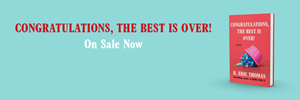Navigating Toxicity and Communication in Relationships
March 13, 2025, 5:22 am
In the world of charity work, the mission is often noble. Yet, the human element can turn a bright endeavor into a dark cloud. When a toxic volunteer taints the atmosphere, it’s a dilemma. Should you stay and fight, or walk away?
The answer isn’t simple. If the organization ignores your concerns, it’s like trying to plant flowers in a field of weeds. Sometimes, the best choice is to take your skills elsewhere. But if you can still make a difference, perhaps it’s worth sticking around. Raise funds, but tread carefully. Protect your peace while doing good.
This dilemma mirrors personal relationships. Consider a scenario where a partner keeps bringing up past relationships. It’s like a record stuck on repeat. The past is a ghost that haunts the present. It’s essential to set boundaries. Speak up. Make it clear that this topic is off-limits. If he can’t respect that, it’s a sign he may not be ready for a healthy relationship.
Your past shapes you, but it doesn’t define you. You don’t owe anyone an explanation about who you were. Focus on who you are now.
Communication is a double-edged sword. It can heal or hurt. A well-meaning friend might send an email filled with concern, but the recipient may perceive it as judgment. The intention may be love, but the impact can be like a slap.
When giving feedback, especially in writing, it’s crucial to choose words wisely. Tone can be lost in translation. What feels like tough love can come off as harsh criticism. In the case of a friend with high blood pressure, the line between concern and criticism can blur.
The friend’s response is valid. She feels judged, and that’s her reality. Give her space. Let her process. When the time is right, acknowledge the misstep. Apologize if necessary. Support her journey without pushing your agenda.
In relationships, whether platonic or romantic, the key is empathy. Understand where the other person is coming from. Everyone has their battles. Sometimes, it’s not about fixing someone but standing by them as they find their way.
In the realm of advice columns, these themes emerge repeatedly. People grapple with toxic environments, whether in charity work or personal relationships. They struggle with communication, often misfiring in their attempts to connect.
The advice often boils down to a few core principles:
1. **Set Boundaries:** Know your limits. If someone’s behavior affects your well-being, speak up. It’s your right to protect your space.
2. **Choose Your Words Wisely:** Communication is powerful. Use it to uplift, not to wound. When offering feedback, consider the recipient’s feelings.
3. **Practice Empathy:** Everyone has a story. Listen before you judge. Understand their perspective.
4. **Give Space:** Sometimes, the best thing you can do is step back. Allow others to process their feelings.
5. **Focus on the Present:** The past is a chapter, not the whole book. Don’t let it overshadow the current narrative.
These principles can guide us through the murky waters of human interaction. They remind us that we are all flawed, navigating our paths with varying degrees of success.
In charity work, the goal is to uplift others. But when toxicity creeps in, it can feel like a weight dragging you down. If the organization fails to address the issue, it’s time to reevaluate your involvement. Your skills are valuable. Don’t waste them in a toxic environment.
In personal relationships, the same applies. If a partner can’t respect your boundaries, it’s a red flag. Communication should be a bridge, not a barrier.
The stories shared in advice columns resonate because they reflect universal struggles. We all face challenges in our relationships, whether with friends, family, or partners. The key is to navigate these challenges with grace and understanding.
Ultimately, life is about connection. We seek to bond, to share, to grow. But when toxicity or miscommunication arises, it can fracture those connections.
So, whether you’re dealing with a toxic volunteer or a partner who can’t let go of the past, remember: you have the power to shape your environment. Speak up, set boundaries, and choose your words carefully.
In the end, it’s about creating a space where everyone can thrive. A space where kindness reigns, and understanding prevails. That’s the goal worth striving for.
In a world filled with noise, let’s aim to be the calm. Let’s be the voices that uplift, the hands that help, and the hearts that understand. That’s how we build a better tomorrow, one relationship at a time.
The answer isn’t simple. If the organization ignores your concerns, it’s like trying to plant flowers in a field of weeds. Sometimes, the best choice is to take your skills elsewhere. But if you can still make a difference, perhaps it’s worth sticking around. Raise funds, but tread carefully. Protect your peace while doing good.
This dilemma mirrors personal relationships. Consider a scenario where a partner keeps bringing up past relationships. It’s like a record stuck on repeat. The past is a ghost that haunts the present. It’s essential to set boundaries. Speak up. Make it clear that this topic is off-limits. If he can’t respect that, it’s a sign he may not be ready for a healthy relationship.
Your past shapes you, but it doesn’t define you. You don’t owe anyone an explanation about who you were. Focus on who you are now.
Communication is a double-edged sword. It can heal or hurt. A well-meaning friend might send an email filled with concern, but the recipient may perceive it as judgment. The intention may be love, but the impact can be like a slap.
When giving feedback, especially in writing, it’s crucial to choose words wisely. Tone can be lost in translation. What feels like tough love can come off as harsh criticism. In the case of a friend with high blood pressure, the line between concern and criticism can blur.
The friend’s response is valid. She feels judged, and that’s her reality. Give her space. Let her process. When the time is right, acknowledge the misstep. Apologize if necessary. Support her journey without pushing your agenda.
In relationships, whether platonic or romantic, the key is empathy. Understand where the other person is coming from. Everyone has their battles. Sometimes, it’s not about fixing someone but standing by them as they find their way.
In the realm of advice columns, these themes emerge repeatedly. People grapple with toxic environments, whether in charity work or personal relationships. They struggle with communication, often misfiring in their attempts to connect.
The advice often boils down to a few core principles:
1. **Set Boundaries:** Know your limits. If someone’s behavior affects your well-being, speak up. It’s your right to protect your space.
2. **Choose Your Words Wisely:** Communication is powerful. Use it to uplift, not to wound. When offering feedback, consider the recipient’s feelings.
3. **Practice Empathy:** Everyone has a story. Listen before you judge. Understand their perspective.
4. **Give Space:** Sometimes, the best thing you can do is step back. Allow others to process their feelings.
5. **Focus on the Present:** The past is a chapter, not the whole book. Don’t let it overshadow the current narrative.
These principles can guide us through the murky waters of human interaction. They remind us that we are all flawed, navigating our paths with varying degrees of success.
In charity work, the goal is to uplift others. But when toxicity creeps in, it can feel like a weight dragging you down. If the organization fails to address the issue, it’s time to reevaluate your involvement. Your skills are valuable. Don’t waste them in a toxic environment.
In personal relationships, the same applies. If a partner can’t respect your boundaries, it’s a red flag. Communication should be a bridge, not a barrier.
The stories shared in advice columns resonate because they reflect universal struggles. We all face challenges in our relationships, whether with friends, family, or partners. The key is to navigate these challenges with grace and understanding.
Ultimately, life is about connection. We seek to bond, to share, to grow. But when toxicity or miscommunication arises, it can fracture those connections.
So, whether you’re dealing with a toxic volunteer or a partner who can’t let go of the past, remember: you have the power to shape your environment. Speak up, set boundaries, and choose your words carefully.
In the end, it’s about creating a space where everyone can thrive. A space where kindness reigns, and understanding prevails. That’s the goal worth striving for.
In a world filled with noise, let’s aim to be the calm. Let’s be the voices that uplift, the hands that help, and the hearts that understand. That’s how we build a better tomorrow, one relationship at a time.


